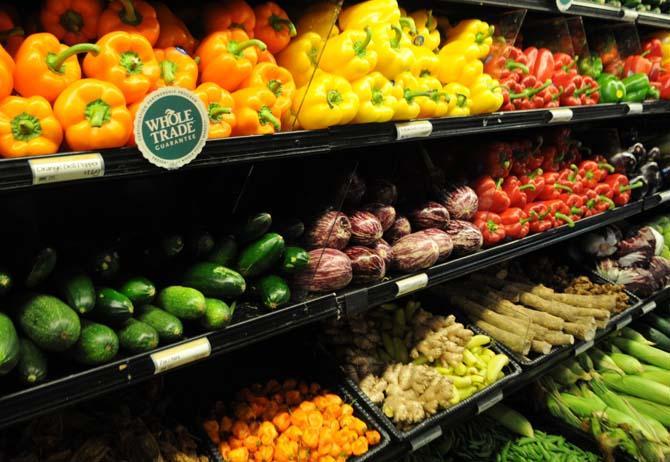They’re rich, cultish, and they flock towards Hollywood. They’re not Scientologists—they’re just rich vegans.
From Ellen DeGeneres to Cory Booker, it seems like everyone who’s someone these days is a vegan. On talk shows, vegan celebrities chat with vegan hosts. On Instagram, vegan influencers promote expensive vegan sponsors. Meanwhile, their financially-strapped audience watches while downing dinners of boxed mac and cheese and Vienna sausages.
To be clear, I don’t have anything against the vegan diet. With an estimated 18% of carbon emissions resulting from the livestock industry, reducing our dependence on meat and animal products is essential to a sustainable future. The average vegan diet “foodprint,” or the carbon footprint attributed to food production and transportation, is less than two-thirds that of an average non-vegan diet.
Nor do I have a problem with the majority of vegan individuals; veganism is undeniably the most sustainable diet, so I commend anyone who is able to adopt it. My problem lies with the elitism of certain vegans who blame non-vegans for being lazy, cruel and careless towards the environment.
Despite the low energetic cost of growing produce, fresh fruits and vegetables are often some of the most expensive products in any grocery store. High production, transportation costs and a lack of government subsidies are to blame for this discrepancy.
If a two-dollar frozen pot pie dinner can keep you full for much longer than an equivalent two-dollar bunch of carrots, why would any consumer on a budget choose to go hungry in the name of ethics?
And in certain communities, having any produce whatsoever is a luxury. Food deserts—the Food Empowerment Project describes these as “geographic areas where residents’ access to affordable, healthy food options … is restricted or nonexistent due to the absence of grocery stores within convenient traveling distance”—force many poor Americans into diets heavy on processed foods and cheap meat.
Convenience stores often serve as the primary food distributors in food deserts. What vegan foods are available in these stores are often either expensive or not substantial enough to supplement a full diet.
Even in wealthier neighborhoods with access to fresh produce, the dairy and meat alternatives that facilitate the transition to veganism can be quasi-nonexistent. Small suburban and rural grocery stores rarely stock more than the essentials—and, needless to say, the average conservative town in the U.S. does not consider hemp milk essential.
Through the force of ingenuity and lots and lots of lentils, some vegans have managed to survive on limited resources for cheap. However, most Americans have neither the time nor resources to devote themselves to a fully vegan diet.
Switching diets is more complicated than just switching milk brands; it could require driving 30 extra minutes to the grocery store in the fancy part of town or recalculating your monthly budget to squeeze out a bigger food allowance.
To promote veganism, celebrities vegans need to do more than retweet videos of animal abuse or talk about climate change on Jimmy Kimmel’s night show. They need to use their influence to address the root of why veganism is still so rare in the United States: food access inequality.
I applaud anyone who can live without eggs and mozzarella sticks. Despite my best efforts, I can’t do it. However, I implore any upper-class vegans to check their privilege before they accuse the working-class of ruining the planet by eating chicken nuggets.
Cécile Girard is a 20-year-old psychology junior from Lake Charles.





